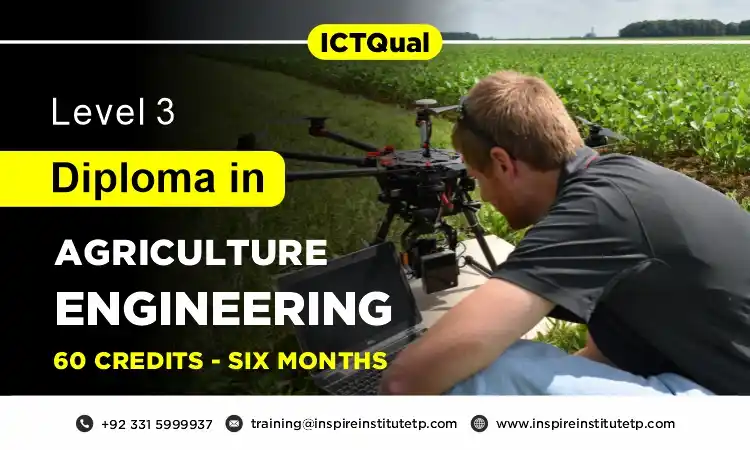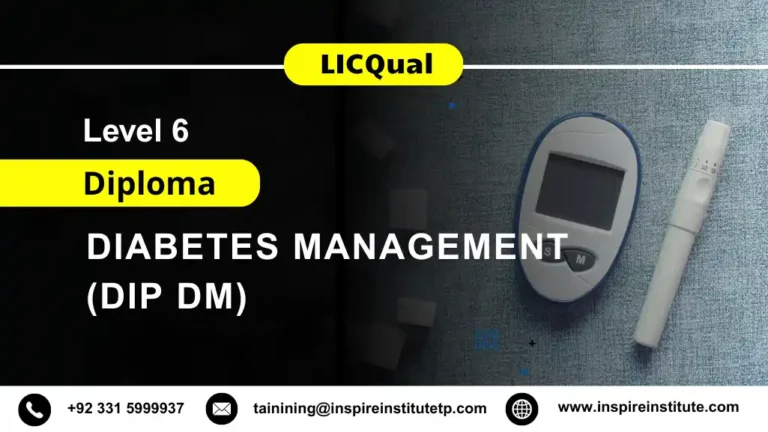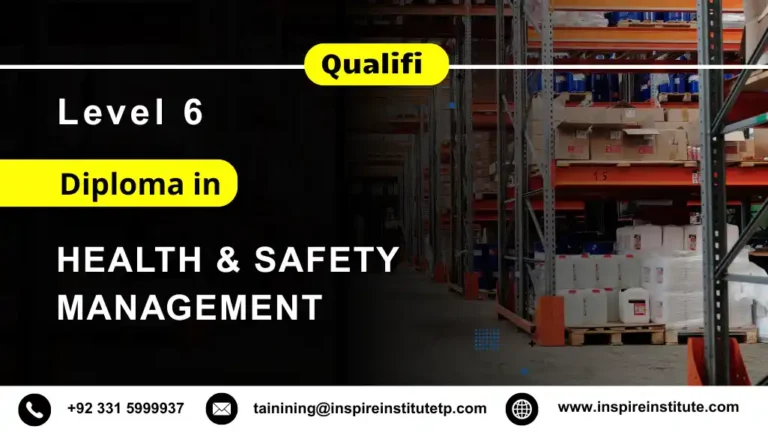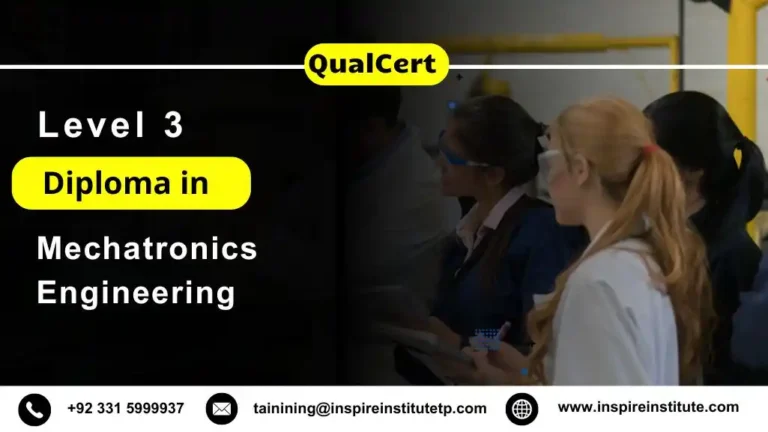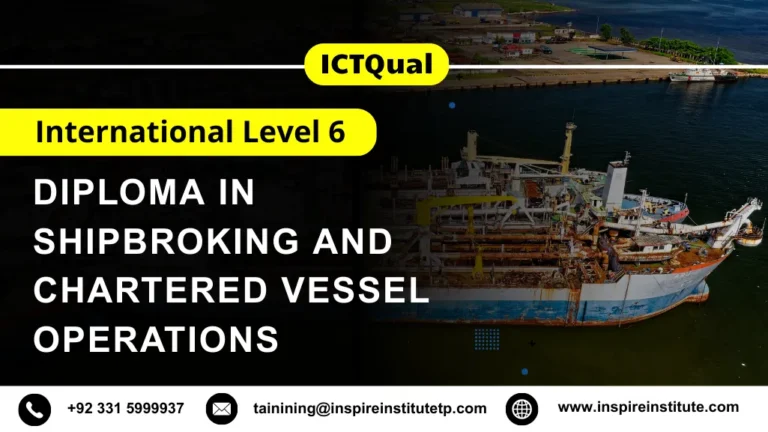ICTQual Level 3 Diploma in Agriculture Engineering 60 Credits – 6 Months
The ICTQual Level 3 Diploma in Agricultural Engineering (60 Credits – 6 Months) is a comprehensive qualification designed for individuals looking to develop technical skills and knowledge in the agricultural engineering field. This program focuses on essential competencies such as the operation, maintenance, and repair of agricultural machinery and equipment.
Through a combination of practical experience and theoretical learning, students will gain expertise in areas like crop production technology, machinery systems, and precision farming techniques. The course is ideal for those aiming to pursue a career in agricultural engineering, equipping them with the necessary qualifications to succeed in this dynamic sector.
Why Choose this Qualification
Choosing the ICTQual Level 3 Diploma in Agricultural Engineering offers numerous advantages for those interested in a career in agriculture and engineering. Here are some key reasons to consider this qualification:
- Industry-Relevant Skills: The course provides hands-on experience and in-depth knowledge of agricultural machinery, equipment, and systems, ensuring you are equipped with the practical skills required by employers in the agricultural sector.
- Quick and Efficient: With a flexible 6-month duration, this qualification allows you to gain valuable skills in a short time, making it an ideal choice for those looking to upskill or change careers quickly.
- Career Opportunities: Agricultural engineering is a growing field, and completing this qualification opens up a wide range of career opportunities in farming, machinery maintenance, equipment manufacturing, and precision farming.
- Highly Recognized: ICTQual is known for delivering high-quality vocational qualifications, and this diploma is recognized by employers in the agriculture and engineering industries, adding value to your professional profile.
- Future-Proof Learning: The course includes training in advanced technologies such as automation and precision agriculture, ensuring that you are prepared for the future of farming and agricultural engineering.
- Progression Pathways: Completing this qualification can serve as a stepping stone to further education or advanced qualifications in agricultural engineering, giving you the opportunity to continue your professional growth.
By choosing this qualification, you gain both the theoretical knowledge and practical experience necessary to thrive in the agricultural engineering sector, setting you up for long-term success in a vital and evolving industry.
Course Overview
Awarding Body:ICTQual AB
Course Level: Level 3
Average Completion Time:
6 Months.
Credits Hours : 60
Evidence & Assignment Based
Qualification Structure
- Introduction to Agriculture Engineering
- Farm Machinery and Equipment
- Irrigation Systems and Water Management
- Soil Science and Crop Management
- Renewable Energy in Agriculture
- Agricultural Project Planning and Management
Who Should Take This Course
The ICTQual Level 3 Diploma in Agricultural Engineering is ideal for a variety of individuals who are looking to build or enhance their career in the agricultural and engineering sectors. This course is suited for:
- Aspiring Agricultural Engineers: Those who are interested in working with agricultural machinery, technology, and equipment. It’s a perfect starting point for anyone looking to specialize in the maintenance, repair, and operation of machinery used in farming and agricultural production.
- Current Agricultural Workers: Individuals already working in the agricultural industry who want to expand their skills, improve their qualifications, or progress into more technical or managerial roles within agricultural engineering.
- School Leavers or Career Changers: If you have a passion for agriculture and engineering and are looking for a practical and focused qualification, this diploma is an excellent choice for starting a new career path.
- Farm Technicians and Machinery Operators: Those who are already involved in farm machinery operation or maintenance and want to formalize their expertise and advance their career in the field of agricultural engineering.
- Technologically-Inclined Individuals: People with an interest in emerging agricultural technologies, such as precision farming, automation, and advanced machinery systems, will benefit from the course’s focus on these areas.
- Entrepreneurs and Farm Owners: Those who own or plan to start their own farm or agricultural business will benefit from the skills and knowledge gained, particularly when it comes to managing and maintaining farm equipment and technology.
Overall, this course is for anyone who wants to gain specialized knowledge in agricultural engineering, whether you’re looking to start a new career or enhance your current skills in a growing and dynamic field.
Course Benefits
The ICTQual Level 3 Diploma in Agricultural Engineering offers several key benefits for individuals seeking to develop their skills and advance their careers in the agricultural engineering field:
- Practical Skills Development: The course focuses on hands-on training, enabling you to gain practical experience in operating, maintaining, and repairing agricultural machinery and equipment. This prepares you for real-world challenges in the agricultural industry.
- Industry-Relevant Knowledge: The curriculum is designed to align with the needs of the agricultural engineering sector, ensuring that you acquire up-to-date knowledge of farming technologies, machinery systems, and maintenance practices.
- Faster Career Progression: With its 6-month duration, this qualification offers a quick route to gaining valuable skills, enhancing your employability, and opening up career opportunities in the agriculture and engineering sectors.
- Enhanced Employability: Completing this diploma demonstrates your technical expertise and commitment to the agricultural engineering industry, making you more competitive in the job market.
- Versatile Career Opportunities: The skills gained through this course apply to various roles in agricultural engineering, including machinery operation, repair, farm management, equipment sales, and maintenance.
- Recognition by Employers: The ICTQual qualification is well-recognized in the agricultural sector, ensuring that your certification is respected by potential employers and clients.
- Foundation for Further Study: This course can serve as a stepping stone to more advanced qualifications or specialized areas of study in agricultural engineering, such as automation, precision farming, or agricultural technology.
- Adaptability to Emerging Technologies: The course incorporates training on modern agricultural technologies, including precision farming and automation, ensuring you are prepared for the future of the industry.
- Flexibility: With a short duration and a focus on practical learning, the course offers flexibility for working professionals or those with other commitments.
- Job Satisfaction and Impact: By gaining expertise in agricultural engineering, you can directly contribute to the efficiency, sustainability, and productivity of farming operations, making a meaningful impact on the agricultural industry.
Overall, the ICTQual Level 3 Diploma in Agricultural Engineering provides a solid foundation for a rewarding career in a rapidly evolving sector, offering both practical skills and theoretical knowledge that are highly valued by employers.
Eligibility Criteria
Eligibility Criteria for the ICTQual Level 3 Diploma in Agricultural Engineering (60 Credits – 6 Months):
Minimum Qualification: A Level 2 qualification (e.g., GCSEs, NVQ Level 2, or equivalent). A background in agriculture, engineering, or science-related subjects is not mandatory but may be beneficial for understanding course concepts.
Age: Minimum age of 16 years.
English Proficiency: Adequate proficiency in English, as the course involves technical vocabulary, written assignments, and communication within engineering and agricultural contexts.
Computer Skills: Basic computer skills are required for completing assignments, managing projects, and using agriculture-related software or data analysis tools.
Optional Experience: Prior experience or exposure to agricultural practices, machinery, or related technical work is not required but can provide a strong foundation and enhance practical learning outcomes.
Qualification Route
Route for Candidates with No Experience
This route is ideal for individuals who are new to agriculture engineering and lack prior work experience.
- Admission: This involves enrolling in the program at an ICTQual Approved Training Centre. Learners then undergo formal training that covers all essential study units, including theoretical knowledge in agricultural systems, machinery, soil science, irrigation, and renewable energy in farming. Practical components include hands-on training in machinery operation, irrigation installation, and sustainable farming practices.
- Assessment: It requires learners to complete assignments demonstrating their understanding of key concepts such as farm machinery maintenance, crop management strategies, and sustainable water usage.
- Certification: It is awarded upon successful completion of the required training and assessments.
Route for Experienced and Competent Candidates
This route is designed for professionals with relevant work experience in agriculture engineering.
- Eligibility: It requires a minimum of three years of verified experience in the field, including practical skills in areas like machinery operation, irrigation system design, and renewable energy applications.
- Assessment: Assessment of competence is conducted at an ICTQual Approved Training Centre. Candidates’ knowledge and skills are evaluated against the course’s learning outcomes without the need for full formal training.
- Evidence: Evidence submission involves providing documentation of work experience, including roles, responsibilities, and tasks completed in agriculture engineering.
- Knowledge and understanding: Knowledge and understanding of all course learning outcomes are verified, and a skills gap assessment may be conducted if additional training is required in areas like new machinery technologies or advanced irrigation systems.
- Certification: It is awarded upon successful verification of the candidate’s competence and experience.
Both routes ensure that learners acquire the skills and knowledge needed to achieve the ICTQual Level 3 Diploma in Agriculture Engineering, providing flexibility for both new entrants and experienced professionals.

